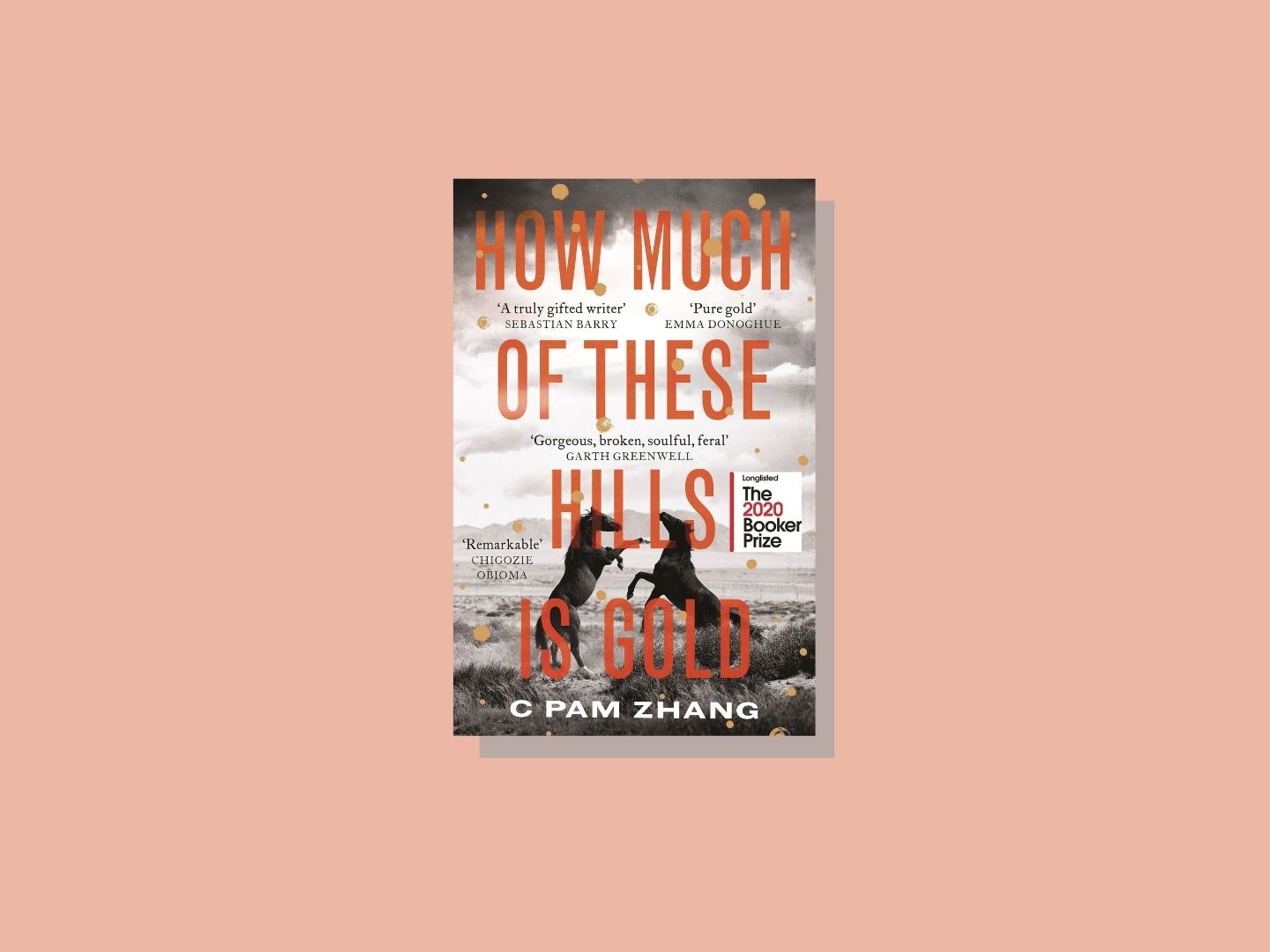
Zhang's debut novel grapples with racism and inherited family trauma (All photos: The Booker Prizes)
"What makes a home a home?” is a question asked multiple times throughout C Pam Zhang’s debut novel How Much Of These Hills Is Gold. Set in the Wild West during a gold rush (each section of the novel is dated between XX59 and XX67), the story gives the untold perspective of Chinese Americans, both native-born and immigrant.
The first chapter begins with Lucy, aged 12, and the androgynous Sam, aged 11, who set off to obtain two silver coins to properly bury Ba, their father. We learn that Ma died much earlier, leaving the two siblings to fend for themselves. With the body of Ba in an old trunk — once filled with Ma’s smells and memories of her homeland across the seas — strapped to a stolen horse, Lucy and Sam pilfer the required funds and journey through America to find a proper burial site.
Each chapter’s title comes from a prominent theme or symbolic element — “plum” provides the stark contrast between the juicy sweet fruit only available to those who can afford it and the purplish bruises the siblings endure; “salt” in tears or the smell of the sea and the flavour Lucy craves most in her life; “mud” is a mask to hide behind or that coating of filth that is used to make their lowly station clear, washed away by the restorative powers of “water”. “Skull”, “meat” and “blood” are like the cycle of life from the bones of the buffaloes thought to be extinct, the bond between the family as well as the blood spilt, and Ma’s craving for meat while Ba attempts to forget the pungent memory of burning flesh; “wind” is the voice of the dead attempting to tell Lucy and Sam the whole truth; and finally, “gold” is the colour of the yellow hills, as well as the precious metal that the prospector in Ba can never let go of, which Sam willingly returns to the sea.
cpamzhang.jpg

How Much Of These Hills Is Gold, while beautiful in its construction is harrowing in its prose, grappling with racism and inherited family trauma. It presents a paradox: Lucy and Sam are their parents’ hope for a better future, but they are also bogged down by heavy loss and the same pains their parents wanted to overcome. The siblings lose each other, half on purpose, and find each other in the end, determined to leave the land of the gold hills for the mysterious homeland their Ma spoke of. I yearned for a more positive ending, but they are painfully separated again and Lucy is but a hollow shell of a person.
In their own birthplace, both siblings are othered by society, assumed to be foreign bodies closer to animals than the white people who are also not native to the soil — something sadly still relevant today. After asking where they come from, a mountain man they encounter says, “Dogs are my favorite people. I’m a mutt myself.”
Zhang’s clever animal imagery grows with Lucy and Sam changing from fearful dogs to evil jackals and finally, the illusive and powerful tiger, a symbol that connects their memories of Ma to their future. The tiger itself reminds me of Yangsze Choo’s The Night Tiger, as the animal also feels ghost-like, visualised through second-hand accounts and imagined descriptions after sightings of its paw prints.
The idea of home is perhaps the most haunting part of the novel, making me question my own definition. In the story, their “home” is constantly shifting, from a shit-filled chicken coop to the site of their father’s grave and, for Lucy, temporarily in the arms of a “friend”, who treats her like a pet. There is no clear answer to Lucy’s question of what makes a home a home in the narrative. Similarly, Zhang has asked questions with her novel without leaving us with definitive answers. The story of Chinese Americans or migrants during the Gold Rush in the Wild West is seldom told, making them seem unreal or even ghost-like.
In an article for The New Yorker titled “When Your Inheritance Is to Look Away”, Zhang writes, “Fiction, inspired by life, summons a presence that lives a life all of its own, breathing its own breath in the lifting of pages, demanding to be looked at. Not all hauntings are bad ones. There are worse things than to invite the ghosts in.” In How Much Of These Hills Is Gold, she practically shoves these ghosts through the door.
See the Booker longlist of 13 books here. The shortlist of six will be announced on Sept 15 and the 2020 winner will receive the £50,000 prize in November. Each shortlisted author gets £2,500.
This article first appeared on Aug 31, 2020 in The Edge Malaysia.


